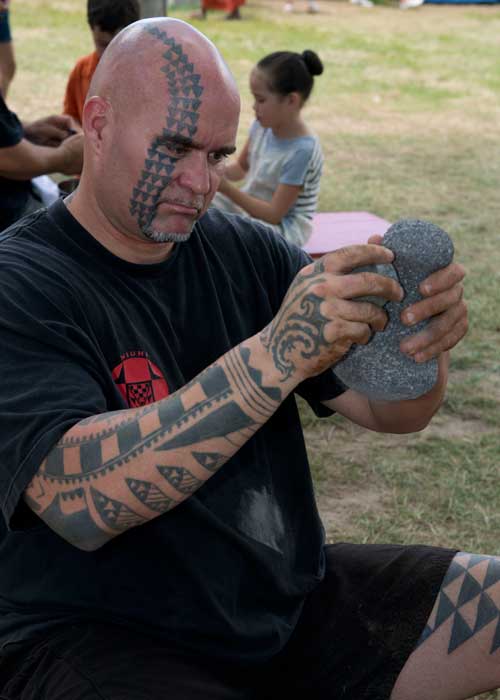For Hawaiian Participants, Independence Day is a Reminder of Ongoing Struggle

Kihei Nahale-a remembers celebrating the Fourth of July as a child. Watching fireworks, eating hot dogs, and enjoying Independence Day in the quintessential American fashion. But when he began to learn of his people’s history and the controversial annexation of Hawai‘i by the United States, he felt torn.
“It’s difficult to celebrate, knowing our history,” said Nahale-a, “so we downplay the meaning [of Independence Day]. Now it’s an excuse to celebrate and hang out with family. But we adjust—we cook traditional Hawaiian food, and hot dogs too.” he added with a laugh.
Blending American and Hawaiian identities is a conflict for many native Hawaiians, including Nahale-a and fellow One World, Many Voices Festival program participant, Kalehua Krug. Krug identifies foremost as Hawaiian, and feels that his American nationality is politically enforced, rather than voluntary adopted.
“To me, American culture is a confusing conglomeration of many cultures and nationalities. It is not my culture,” said Krug, “The Hawaiian culture is thousands of years old. I was raised Hawaiian and I identify as Hawaiian – I choose that.”
But Krug made it clear that he does not feel anger or resentment towards the Fourth of July celebrations on the National Mall. In fact, the struggle for independence is something he can understand all too well. The celebrations commemorate a joyful occasion that Krug hopes to see in Hawai‘i one day, too.
“I’m happy for America. You fought for your independence and won the right to govern yourselves. I want that for my people, too. I want to be part of a group that determines its own destiny.”
Morgan Anderson recently graduated from the University of California, Davis, with a B.A. in Cultural Anthropology. She is an intern with the Smithsonian Folklife Festival, assisting with the One World, Many Voices: Endangered Languages and Cultural Heritage program.

